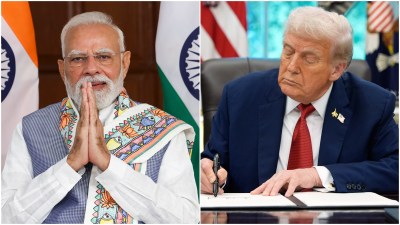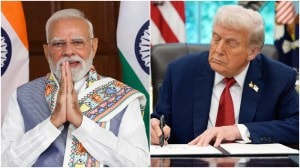Climate talks show signs of Kyoto compromise
Global climate talks showed progress as negotiators hinted at a compromise between rich and poor nations.
Global climate talks showed progress on Friday as negotiators hinted at a compromise between rich and poor nations on greenhouse gas emissions.
More than 100 environment ministers were expected to work through the night to end a dispute between developing countries and Russia,Canada and Japan over continuing the Kyoto Protocol which only regulates emissions in rich countries,and only until 2012.
A draft drawn up for negotiators in the Mexican beach resort of Cancun suggested that a compromise had been struck,referring to “a second commitment period”,but it must still be cleared by a conference of 192 countries.
That could unlock a modest deal to release climate aid for the world’s least developed countries and payments to protect tropical forests,and to share low carbon technologies.
“It’s too soon to know,” US deputy climate envoy Jonathan Pershing said of the chances of an agreement.
“The convergence is likely to come out of the larger discussion we haven’t had yet,” he told Reuters in Cancun,where junior delegates assembled in sunlit bars around empty swimming pools along a beach closely patrolled by Mexican warships.
“It’ll be an overnighter,another 12-18 hours,” said one senior delegate who asked not to be named.
“If this gets adopted today I think we may have a breakthrough,” Wendel Trio from Greenpeace International said of ambitious targets to cut greenhouse gas emissions far beyond current pledges from industrialized countries.
Developing nations say rich countries,which have emitted most greenhouse gases since the Industrial Revolution,mainly by burning fossil fuels,must extend Kyoto to a second period before poorer countries sign up for curbs that would hurt their drive to end poverty and grow their economies.
Kyoto currently obliges almost 40 developed nations to cut emissions by an average of 5.2 percent below 1990 levels from 2008 to 2012.
Japan,Russia and Canada have said they will not extend it and are instead insisting on a new,wider UN treaty in coming years that includes binding emissions targets for other countries,including China,the United States and India.
Huang Huikang,the Chinese foreign ministry’s special representative at the climate change talks,told a Chinese newspaper there was a chance of a package of accords in Cancun.
“But now the biggest concern is still the extension of the Kyoto Protocol,and here the core element is the second commitment period,” he told the Economic Observer newspaper.
Chris Huhne,Britain’s energy and climate change secretary,said that another failure in Cancun,after last year’s Copenhagen summit failed to reach a binding treaty,would reduce the UN-led climate negotiations to a “zombie process,” stumbling along for years with no real hope of progress.
The Copenhagen summit collapsed in acrimony,producing only a non-binding accord to limit a rise in temperatures to below 2 degrees Celsius (3.6 F) above pre-industrial times.




- 01
- 02
- 03
- 04
- 05


























